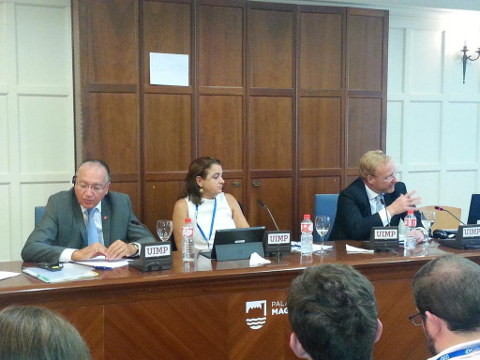

THE European Patent Office (EPO) has a toxic legacy, a criminal legacy, or a "difficult legacy" as JUVE has just put it. It's a legacy of corruption. Profound corruption. We haven't even stopped covering the corruption associated with Topić, who left the Office a few months ago.
"Collective punishment or simply a threat to all judges?"António Campinos may have sent Topić away, but he replaced him and others with former colleagues, including his boss. Authored by Mathieu Klos of JUVE Patent nearly a month ago and cited by SUEPO yesterday (very belatedly) is this report about Battistelli's legacy of injustice. He did endless damage to the EPO's integrity and reputation; Campinos repaired nothing at all and judgments from courts inside the EPO (Organisation) can no longer be trusted. Klos says that "the move" to Haar is viewed by judges "as a disciplinary action by Battistelli."
Collective punishment or simply a threat to all judges? Here are some portions from the article:
In the summer of 2016, controversial former EPO president Benoît Battistelli, along with the organisation’s 38 member states, decided to largely separate the Boards of Appeal from the EPO. This was due to strong criticism from the European patent community that the court was no longer independent, or immune of influence, from the EPO president – important, given that the Boards of Appeal review decisions made at the EPO.
As a result, since 2016 the Boards of Appeal has been run by its own president, who exercises a high degree of self-administration
And at the end of 2017, as part of the new measures the court and its employees moved to Haar from the EPO main building in Munich. In many public commentaries, and in interviews with JUVE Patent, employees of the Boards of Appeal saw the move as a disciplinary action by Battistelli.
However, now the Enlarged Board of Appeal has the power to review this measure. Within the context of Articles 6 and 15 of the European Patent Convention, a new the question has arisen. Does Haar belong to Munich or not?
[...]
The case which has led to such far-reaching consequences is just one of many in IPCom’s patent processes, to force the mobile industry to take a licence on the NPE’s patents.
In 2008, for example, the NPE of Munich-based patent attorney Bernhard Frohwitter engaged Nokia in a large series of disputes. In the following years, IPCom also filed disputes against Deutsche Telekom and Vodafone, among others.
According to Article 112 EPC, the President of the EPO may refer a point of law to the EBA, in order to ensure uniform application of the law, or if a point of law of fundamental importance arises,"where two Boards of Appeal have given different decisions on that question".
Unless this Kat has missed something, there have not been conflicting decision from the TBAs on the issue of the products produced by essentially biological processes since the issue was determined in G 2/12 (Broccoli/Tomato II). So on what grounds could the issue be referred by the President?
[...]
It is also noted that the EBA has form in finding referrals by the President as inadmissible in the absence of conflicting decisions from the Boards of Appeal (e.g. G 3/95). The case law therefore suggests that any referral by the President, citing legal developments such as statements from the European Commission, is unlikely to be accepted by the EBA. In fact, it seems highly probable that the EBA will consider the issue to have already been fully decided in G 2/12 (Broccoli/Tomato II).
None-the-less, the President's proposal apparently "received broad and overwhelming support from almost all Contracting States". The President's thus plans to "proceed swiftly to submit the referral".
[PDF]. "CIPA’s position is that the above-mentioned conflict (between judicial interpretations of the EPC and Rule 28(2) EPC) should be solved in a lawful manner," it concludes. Remember that CIPA is a loud proponent of UPC and it has done photo ops with corrupt Battistelli.
EPO upholds patent on Copaxone 40mg